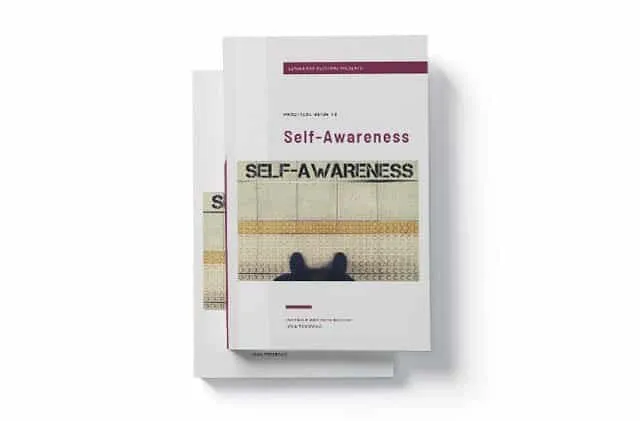Self-reflection can help you grow and change by examining your personal experiences. To increase your self-awareness, improve your learning, and grow as a leader, you need to dedicate time to think about yourself. This is a crucial part of leadership development.
As a leader, you need to check your skills, strengths, and areas of improvement, so you can get more clarity on the direction where you should be headed.
I know what you’re thinking. Aren’t we supposed to be thinking about others as empathetic leaders? Yes, you should think about your team members. You should also think about yourself.
What is reflective leadership?
The art of reflective leadership is about being present, aware, and attentive to our experience during the day. This is not a new concept, and I’ve always enjoyed thinking about things that happened throughout the day.
A personal journey into self-awareness added an interesting level of thinking to my life. Whenever I consider how I engaged with my colleagues over the years, I realized that sometimes I took a more direct approach, and at times, I took a longer route.
Neither of them is right nor wrong. Flexibility is the key in any situation.
Why is a reflective practice important for a leader?
Reflective practice is an effective way to help your people check their thoughts and actions with your encouragement. Sometimes, you might find that they have colleagues who often struggle in similar ways.
Being a reflective leader is about constantly learning and growing. Effective leaders don’t decide without first reflecting on their experiences, looking for different insights that might apply to improve future outcomes.
You can start your reflective practice with a few simple questions:
- How did I feel in that situation?
- What was I thinking while it was happening?
- How did I react and behave?
- How can I learn from this experience?
Reflective leaders are self-aware and present a frontless approach to life. This means they don’t act like someone else to gain respect. Instead, they let themselves be vulnerable with others on an even playing field.
Regular self-reflection is essential in helping you identify your strengths and areas of improvement. Here are seven steps for you to get started with an effective self-reflection as a leader.
1. Reflect regularly
When I was just starting out with self-reflection, I had a challenging time getting my schedule organized. I would always have other things to do and kept postponing the reflection. Eventually, I realized it’ll never work that way.
If you want to practice self-reflection, schedule at least 10 minutes a day. Block off that time in your calendar to ensure commitment and prevent other things from interfering. Once you get into the habit of having regular reflection, you can extend the session up to 30 minutes.
2. Describe your experiences
I was not a fan of writing things down, especially during my early corporate years. I always believed it was enough just to think about things. The more I reflected, the less space I had in my mind to organize all those thoughts.
If you have a journal, digital note taking app, or any other way of writing things down, do so from the start. Write all your ideas, feelings, emotions, and thoughts from experiences you went through that day.
Emphasize all of them by describing everything. For example: “I felt really discouraged after today’s team meeting, as I didn’t have time to share my new idea.”
Being as descriptive as possible will increase understanding of your emotions and their influence on your thinking.
3. Start with one area
I found self-reflection overwhelming at the start. As I began reflecting, I saw a surge of all experiences from that day rushing into my mind. To overcome this, begin by focusing on one event of the day.
This can be challenging meeting with your team or a conversation with your department head. In case that the meeting was full of experiences and moments to reflect on, break it down to smaller, consumable chunks.
That way, you’ll get to understand each of those moments and how they contributed to the big picture.
4. Practice honesty
While this may be an obvious suggestion, it often ends up overlooked. I can clearly remember frequently that I wasn’t honest with myself about what really happened.
It’s crucial to exercise honesty, as you will check all angles of the experience. This will require you to acknowledge areas you need to improve. It’ll also push you to be more realistic.
Remember, you are doing this to help yourself. If you can’t be honest with yourself, how can you thrive as a leader?
5. Adjust regularly
As I share all the steps on how you can approach reflection practice, it’s important to observe what works for you. There is no one-size-fits-all style to doing it.
This is essential in the first few weeks of deliberate practice. I learned it the hard way. I was getting into the self-reflection, and I strictly followed one template to note down my daily experience. After several weeks, I saw the same thing over and over and I got bored with it. I felt like I was reflecting on things I already covered and improved.
To keep things fresh in your own way, test things out and find what works. You can adjust the time of the day when you do the reflection. You might stop doing the journal and take voice notes on your phone. Whatever you do, keep adjusting regularly and strengthen your reflective practice.
6. Exercise self-care
We all have experiences that change us. When we slow down to consider these moments, the world becomes brighter and more colorful because it’s reflected in our eyes as an opportunity for growth.
Whether through reflection on past actions or experiences, it’s an investment into yourself. Self-care will help you become a better leader and a happier person.
Self-care begins with you. Your own well-being deserves the attention, so invest time regularly. You deserve it.
7. Never stop learning
Having all these skills, tools, and practices available gives us endless opportunities. Once you learn something, in this case, self-reflection, don’t stop.
I know it’s tempting because I’ve been there. I got complacent. Resist the temptation to stop once you get to a certain point. Every time I think about stopping, I remind myself that life is a never-ending learning experience.
Thinking about it this way, you will further develop a growth mindset. As you grow, people around will grow too.
The Importance of Reflecting on Your Leadership Abilities
Reflective leadership is a process that takes time and practice to master. It’s about being present in the moment, being aware of our thoughts and feelings, and then adjusting accordingly.
Leaders who can reflect on their own experiences can learn from them and grow as individuals and professionals. If you want to develop your reflective leadership skills, start by practicing regularly. Describe your experiences honestly, without judgement or criticism. Be patient with yourself—it takes time to develop these skills.
Finally, never stop learning! There is always something new to be discovered in the world of reflective leadership.
How do you practice self-reflection? Share your tips in the comments below!







